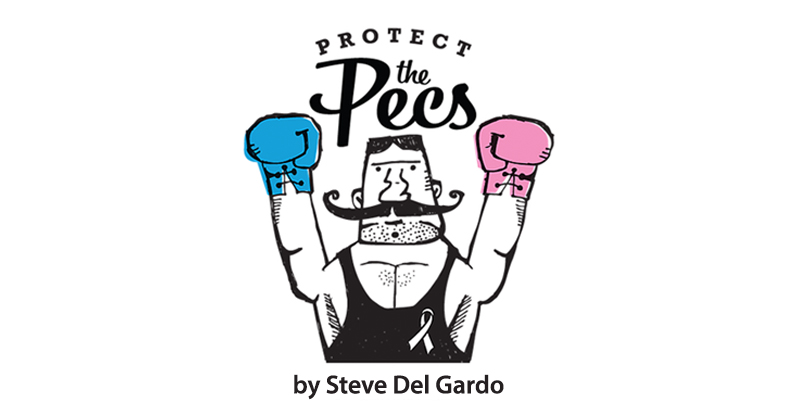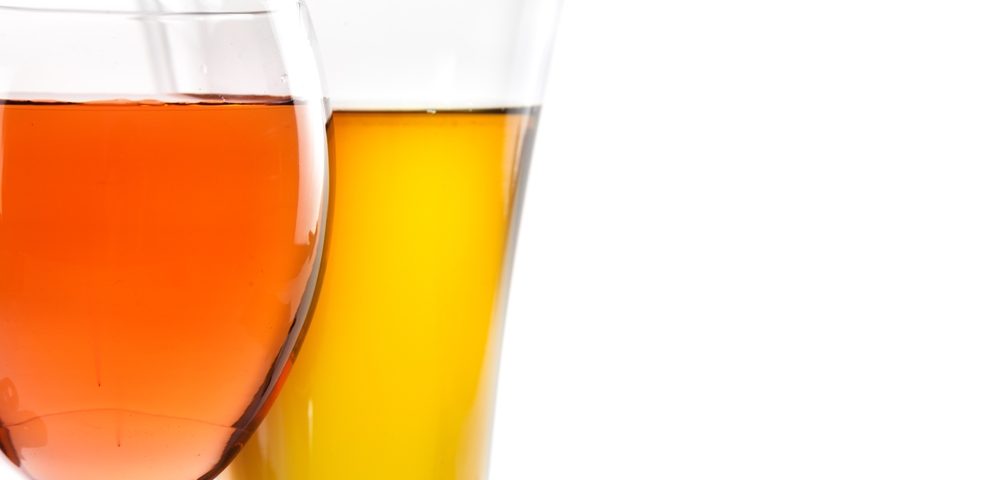 So, whom shall I annoy this week? Last week, I took aim at soy lovers, soybean farmers and others. I’m on a roll.
So, whom shall I annoy this week? Last week, I took aim at soy lovers, soybean farmers and others. I’m on a roll.
Today, let’s talk about the possible link between wine, beer and breast cancer. Lately, I have been drinking less beer because of all I’ve read about the estrogen in hops, and estradiol, a form of estrogen which can also damage your manliness and create man boobs! Crazy, right?
So, I put down my favorite beer and started to drink wine. Then I started to think: Is wine really that good for you? Could what I just learned about beer be true for wine? I hope not. I really do not want to start drinking tequila, a whole new adventure that sounds interesting but crazy. I love crazy, but I want to remember what I did the night before and not have a hangover.
Back to the wine.
Dr. Edward Miller, described as an “advocate for intelligent wine drinking,” contested in a 2016 Wine Folly blog the results of a study reporting a possible link to breast cancer. He wrote: The study showed, namely, that women who drink light to moderate alcohol (1/2 to 1.5 drinks/day) showed a 1.6% overall increase in breast cancer risk. So, if the study is correct, women wine drinkers would see a raised lifetime risk of breast cancer from 12.4% to 14%. However, the Annals of Internal Medicine published a study which showed decreased cancer deaths in wine drinkers but not in beer or spirits drinkers. To my knowledge, no medical study has shown increased cancer deaths in wine drinkers. That must be somewhat tempered by the fact that wine drinkers, on average, are a little different than consumers of other alcohol beverages: they are thinner, eat more grains and exercise more – all of which reduce cancer risk. [Note: Emphasis placed by columnist.]
I have good news for the wine drinkers among us: You appear to be safe … for now. But the real concern out there is the beer and other spirits. Let’s talk BEER!
Guys, I must tell you something you may not want to hear: Beer has ingredients that can damage your manliness and change your pecs to man boobs. Hops contain an estrogen called estradiol, which can do the body bad. This estrogen stops the production of free testosterone, which makes your testes useless. Barley is a purported galactogogue (milk promoter), used by used by nursing mothers in many cultures to increase their supply (although not necessarily in its beer form).
Why do you think there are so many more fertility issues now than in the past? The blame isn’t on women these days; it’s men who appear to be having issues.
Beer has been in production for more than 25,000 years. Monks are said to have brewed beer, at least it part, because they thought it would help them lose their libido (erectile function). By the way, that holds true today: If you drink too much, you will not be able to perform. And man boobs are well-known, though science has yet to show whether this relates to hormone overdrive, or simply to drinking too much beer.
Beer also contains a hormone called prolactin, which increases breast milk production. That’s natural for pregnant women, but not natural for men. What are we up to here? Hops destroys your manliness, beer seems to excite lactation, and it definitely increases the size of your breasts. What else can we learn about beer? Well, it has a sedentary effect, too.
Honestly, I think women should drink more beer and men should start drinking more wine.
So, does beer increase your chance of getting breast cancer? That is million-dollar question, right? Science is still out on this yet, but my strong inclination is … YES.
Breast Cancer.org notes that alcohol (it lumps them all together) “can increase levels of estrogen and other hormones associated with hormone-receptor-positive breast cancer.”
As with much of breast cancer, we’re still waiting for research results that relate specifically to men.
***
[My name is Steve Del Gardo. I am a breast cancer survivor. Warrior of Life. Adventure Seeker. I am who I am. Read my story at www.protectthepecs.org].
Note: Breast Cancer News is strictly a news and information website about the disease. It does not provide medical advice, diagnosis, or treatment. This content is not intended to be a substitute for professional medical advice, diagnosis, or treatment. Always seek the advice of your physician or other qualified health provider with any questions you may have regarding a medical condition. Never disregard professional medical advice or delay in seeking it because of something you have read on this website. The opinions expressed in this column are not those of Breast Cancer News, or its parent company, BioNews Services, and are intended to spark discussion about issues pertaining to breast cancer.

